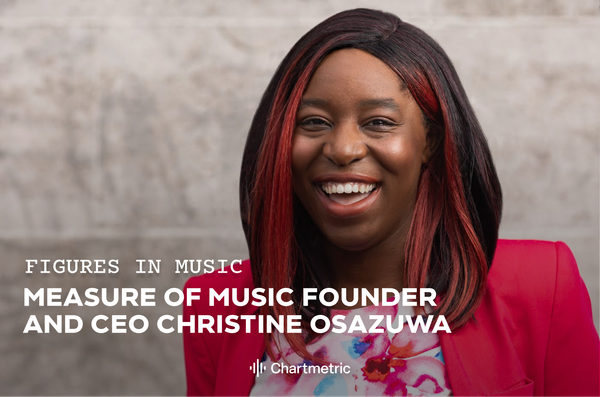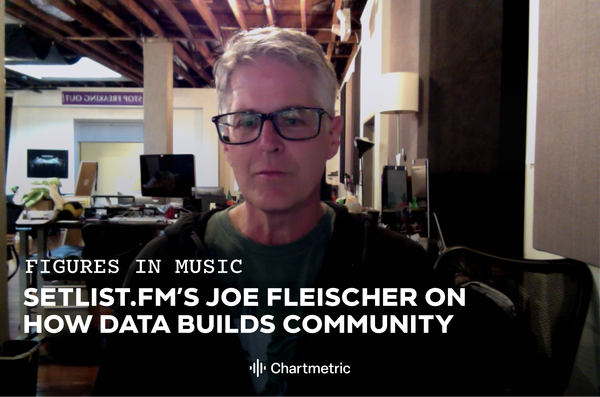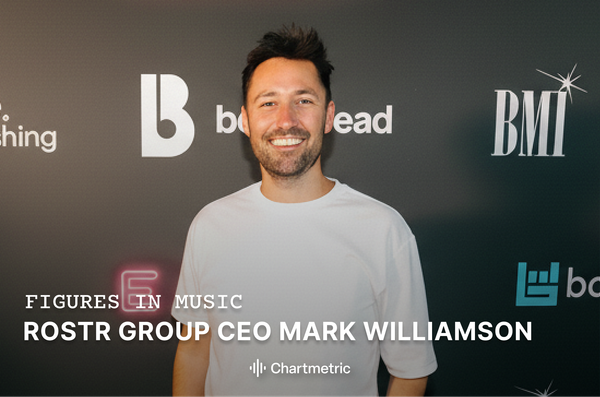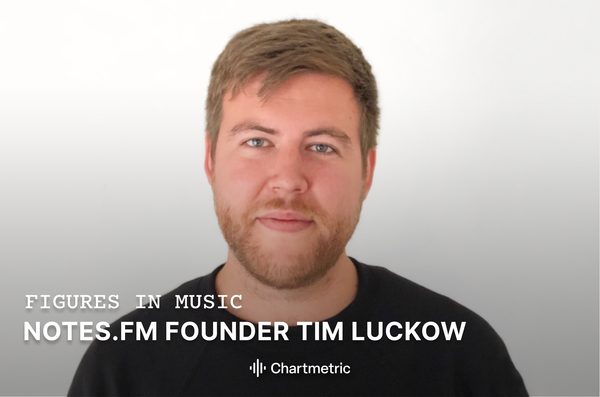In the digital age of music, where streaming services and algorithms shape much of what we listen to, few figures have blended creativity and data as uniquely as Glenn McDonald. The former and only “Data Alchemist” to work at Spotify, McDonald has played a pivotal role in developing and exploring the intricate ecosystem of genre classification. From creating the genre map Every Noise At Once to pioneering genre taxonomy in streaming, his work has shaped how millions discover music today.
This past June he released his new book “You Have Not Yet Heard Your Favorite Song,”– a fascinating read that takes you through music’s rapid progression into the streaming age. Diving further into some of the novel’s topics, we sat down for a conversation with Glenn where he reflected further on the evolution of genres, the role of community in music, and why human connections remain at the heart of musical discovery.
This interview has been condensed for clarity.
Your official role at Spotify was “Data Alchemist.” Can you talk a little bit about how you came to acquire such a unique title and where that journey began?
I started in music as a fan and a writer. For 10 years, I ran a music review column in the early days of the internet and I often did small data projects like analyzing my record collection or scraping music data from the web. Professionally, I was working in enterprise software, always in roles connected to data analysis, though not specific to music.
By 2011, the company I was with got acquired by Google, and my project was shut down, so I moved on to The Echo Nest, a music data startup. I joined just as streaming services like Spotify were emerging, and we were focused on music recommendation, radio, and personalization algorithms. Within two years, Spotify acquired us in 2014.
At The Echo Nest, my official title was 'Principal Engineer,' but that started to cause confusion. I would do these experimental music projects, and when journalists interviewed me, they'd ask for my title. I would say 'Principal Engineer,' and they would write "The Echo Nest's Principal Engineer", and I'd have to tell our two founders that I didn't say that.
Out of self-defense, I jokingly started calling myself a 'Data Alchemist.' I liked it because data scientists search for truth, but I was more focused on experimenting and creating things with data. The Echo Nest CEO, Jim Lucchese, read that and said "That’s your title now." Eventually, Spotify even made it official in their HR system. I was the only 'Data Alchemist' at the company, but it captured the spirit of what I was doing—blending data and creativity to shape music experiences.
The topic and debate around genres is a huge topic in ‘You Have Not Yet Heard Your Favourite Song.” Can you share how you got started working with such a complex concept? And what are your thoughts on the current state of genres?
I’ve always been interested in genres as a listener, but my work with genres as data began at The Echo Nest. We had a database that tracked how people described artists, so we could tell you that people write the word 'rock' in articles about Rihanna, but if you mean The Who when you say 'rock', Rihanna isn't what you want. Descriptive word and genre names are different. It made much more sense to build genres around artists, not words.
Over time, as we expanded from 12 to 100 to 400 genres, I started to understand that genre isn’t just about musical parameters like arrangement or meter. There’s a cultural aspect to it that’s more important to people. For instance, Bulgarian and Romanian hip hop might sound the same musically, but they have almost entirely different audiences. The community surrounding the music is often as important as the sound itself.
This became clear as I tried to explain to my 17-year-old why bands like The Damned and The Stranglers were considered punk in 1978, despite sounding very different from later punk bands like Blink-182. Punk wasn’t just a sound; it was a scene, a community of musicians and fans, and the distinctions that seemed purely musical were often born out of that community.
Even though technology has changed and we’re now exposed to more music, genres still exist because people naturally form communities, and "genre" is what we call musical communities. The internet has just made it easier for those communities to overlap. People may claim that genres are dead or that they listen without genre filters, but really they just appear more fluid because we can see them all at once now, and it's easier to cross between them.
Definitely. Streaming has connected us in ways that make cultural exchange effortless, ultimately becoming vital for both music and society. Globalization doesn't erase identity—it amplifies it, giving niche genres the space to flourish in a larger, interconnected world.
Exactly. I often compare music and food when thinking about globalization, because both undergo a lot of blending without losing their individuality. For example, Icelandic hip hop will always remain somewhat distinct due to the language barrier—it takes effort to appreciate music in a language you don’t understand. However, cultural exchange still happens, leading to hybrids, like Korean fusion burritos. But the existence of fusion doesn’t mean traditional Mexican or Korean food disappears.
Similarly, in music, genre crossovers don’t erase the original genres. Hip hop may influence pop, and metal may influence rock, but there are still countless metal bands doing their own thing, untouched by mainstream trends. Pop without hip hop still exists, just as you can find a burrito without Korean chicken. So, while I think about the risks of globalization blurring genres, I don’t see the negative outcomes happening yet.
The core idea at the end of that chapter was that anything that reduces fear of “the other” also reduces the idea that some people are fundamentally different or dangerous. Wars and hatred often stem from the notion that other people are so different that conflict becomes justifiable. But exposure to other cultures—whether through travel, food, or music—undermines that belief. People realize that the things they were afraid of aren't so foreign after all.
In terms of genre categorization—do you think the way we label genres might or needs to change? For example, Drake is labeled simply as 'hip hop,' but Bad Bunny gets categorized as 'Latin hip hop,' or artists from Africa are labeled 'African hip hop.' Do you see these geographic or cultural labels fading away, and should they? Should artists like Bad Bunny be listed alongside other hip hop artists without the 'Latin' distinction?
At the end of the day we're really talking about communities here. If you replace the word 'genre' with 'community,' it becomes easier to understand. These communities aren't going to disappear. For example, there's a Malawian hip hop community, and it's not going to dissolve into the global hip hop scene. People in Malawi won't forget the differences between their local hip hop artists and Drake. Some artists who began "local", like Bad Bunny, may become part of the global hip hop community, but these distinctions still exist.
For those of us working with the data, it's definitely a challenge to figure out how to manage this. But it's also kind of a bureaucratic issue—culture will always evolve on its own, and our job is just to figure out how to represent that.
We work at this with our own system at Chartmetric–figuring out how to best categorize and label artists both for users and for the ecosystem as a whole. You’ve actually helped some of our team in the past with this work. Could you share a little bit about that experience?
The key difference between the work I did at Chartmetric and Spotify is that at Spotify we had a lot of resources to throw at the problem. When I started the genre project, I relied on human expertise to lay the foundation. I personally kept doing the work and recruited others, which became the core resource behind the genre visualization project everyone knows today. This allowed us to make precise distinctions that algorithms and data alone couldn’t achieve. For instance, with Estonian trap versus Estonian hip hop, it’s not that there are completely separate audiences, but by having someone manually go through 80 rappers, we could identify which artists were more trap and which were more traditional hip hop.
The challenge with doing a similar project at Chartmetric was seeing how far we could get without that scale of human intervention—letting audience dynamics alone mostly determine things. While it was great that we could do this at Spotify, from the perspective of music communities it’s strange to rely on corporations to pay people for niche musical expertise. Ideally, the world should be able to self-organize without needing to depend on whether an engineer at Spotify stays employed.
So, at Chartmetric, we tried to start over with a less detailed, less geeky taxonomy, one that was more organic and driven by audience dynamics. In both projects, most of the genre names emerged from the communities themselves. At Spotify, I would sometimes invent names for genres that didn’t have a label yet, but at Chartmetric, we tried to derive those names directly from the data or, at least, use the data to guide us toward a list of possibilities.
Getting to invent genre names must’ve been a blast! Do you have a favorite that you created over the years?
I tried not to make up genre names unless I really couldn’t find anything else, but over time, I became more disciplined about it. In the beginning, I was much more willing to create names. One of my favorites was 'Laboratorio,' which I came up with after seeing Sigur Rós perform. The opening band, Amiina, who I barely knew, played very atmospheric music, and instead of standing at the front of the stage with instruments, they had this setup of devices on tables. The music played while they wandered around, adjusting knobs and switches. It felt more like they were operating a large apparatus in a lab than performing a traditional rock concert. So, I thought the idea of music that felt like a lab experiment rather than a stage performance was a fun concept, and that’s how I came up with the name 'Laboratorio.'
So fascinating and such an amazing experience. Reflecting over all these moments in your career, do you have any core advice that you would give artists who are looking to find success in the streaming ecosystem?
My advice to artists is to focus on what they’ve always known they should do: build their craft and community, not chase algorithms or try to 'hack' streaming services. Those tricks rarely work, and even if they do, the algorithms change constantly, so any success is fleeting. Instead, invest in what genuinely supports your career and growth.
When it comes to genre, there's no need to overthink it. You should find and support a scene that resonates with you, whether it's local or virtual. In 1985, you'd play at local bars; in 2024, it might be through Discord. But the essence is the same: you want a community because collective attention is key. If you’re outside the top 100 or 1000 artists, you probably don't have a personal fan army the way Taylor Swift does, so finding a community you can be part of is vital to building and sustaining your career.
For example, if you’re in a niche like Gothic Symphonic Metal, immerse yourself in that scene. Play festivals, support fellow bands, engage with fans, and you’ll naturally find yourself on the right playlists and gaining traction. But remember, no algorithm can save you if you don’t have an audience. Even if Discover Weekly gives you a boost, without a solid fanbase, it won’t last, and you won’t have the support needed for touring or selling merch. So focus on what truly matters: your audience and community.






